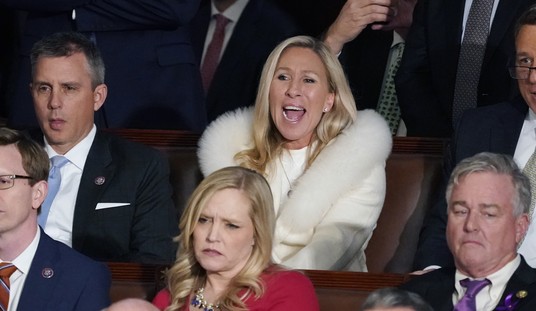Cloudflare, a San Franciso company that specializes in protecting websites from cyberattacks, announced on Sunday that it is terminating its business relationship with 8chan, a far-right extremist website, in the wake of a mass shootings in El Paso, Texas, over the weekend.
The mass shootings in El Paso, Texas and Dayton, Ohio are horrific tragedies. In the case of the El Paso shooting, the suspected terrorist gunman appears to have been inspired by the forum website known as 8chan. Based on evidence we’ve seen, it appears that he posted a screed to the site immediately before beginning his terrifying attack on the El Paso Walmart killing 20 people.
Unfortunately, this is not an isolated incident. Nearly the same thing happened on 8chan before the terror attack in Christchurch, New Zealand. The El Paso shooter specifically referenced the Christchurch incident and appears to have been inspired by the largely unmoderated discussions on 8chan which glorified the previous massacre. In a separate tragedy, the suspected killer in the Poway, California synagogue shooting also posted a hate-filled “open letter” on 8chan. 8chan has repeatedly proven itself to be a cesspool of hate.
8chan is among the more than 19 million Internet properties that use Cloudflare’s service. We just sent notice that we are terminating 8chan as a customer effective at midnight tonight Pacific Time. The rationale is simple: they have proven themselves to be lawless and that lawlessness has caused multiple tragic deaths. Even if 8chan may not have violated the letter of the law in refusing to moderate their hate-filled community, they have created an environment that revels in violating its spirit.
“We do not take this decision lightly,” Cloudflare explained. “We reluctantly tolerate content that we find reprehensible, but we draw the line at platforms that have demonstrated they directly inspire tragic events and are lawless by design. 8chan has crossed that line. It will therefore no longer be allowed to use our services.” [Emphasis mine]
The company pointed out that when they kicked another far-right website, the Daily Stormer, off the Cloudflare network, the site came back online using a Cloudflare competitor. “Today, the Daily Stormer is still available and still disgusting. They have bragged that they have more readers than ever,” Cloudflare said. “They are no longer Cloudflare’s problem, but they remain the Internet’s problem.” (It should be noted that three companies — Google, Cloudflare, and Amazon — control nearly 70% of this market.)
Cloudflare said they “feel incredibly uncomfortable about playing the role of content arbiter and do not plan to exercise it often,” noting correctly that as a private company, they’re not bound by the First Amendment, which protects speech from government overreach. “The only relevance of the First Amendment in this case and others is that it allows us to choose who we do and do not do business with; it does not obligate us to do business with everyone.”
And all the Christian cake bakers said, “Amen!”
Online extremism is a very real, and sometimes deadly, problem, whether it comes from al Qaeda or the alt-right, and we as a society have yet to find a way to deal with it effectively. The internet has made it easy for violent extremists to find one another and even to organize. And in 8chan, it appears that mass shooters have found a welcome platform for their hateful manifestos.
On the surface, Cloudflare’s decision sounds like a no-brainer — of course no one wants mass murderers to have a platform to spew their violent, disturbing rhetoric and plan terrorist attacks, but as Glenn Reynolds pointed out at Instapundit Sunday night:
Prediction: This will not help, and there will be a slippery slope as the usual woke idiots will be encouraged to demand bans of other sites they dislike. Will Cloudflare be strong enough to resist those? I doubt it, personally, but I’d love to be wrong.
The question is, will it stop with 8chan? Answer: of course it won’t. A loud and extremely powerful far-left minority has the tech industry in its thrall, along with most of our cultural and educational institutions, and they’d love nothing more than to shut down conservative media because, in their eyes, we’re dangerous — we promote gun ownership and reject that LGBTQ agenda. To them, we’re accomplices to every school shooting and every suicide of a mentally unstable transgender person. I would not be surprised if they’re already lobbying Cloudflare to drop sites that promote “hate.” Where is Cloudflare going to draw the line? They suggest that they’ll draw it at lawbreakers, but from there’s it’s a quick jump to websites that promote content the left deems “dangerous.”
“Cloudflare is not a government,” they said. “While we’ve been successful as a company, that does not give us the political legitimacy to make determinations on what content is good and bad… In cases like these, where platforms have been designed to be lawless and unmoderated, and where the platforms have demonstrated their ability to cause real harm, the law may need additional remedies.”
There’s a lot of really bad content at 8chan — in addition to racist and anti-Semitic rhetoric, the site has been caught hosting child pornography and members were involved in swatting incidents in the Portland area a few years back. The content hosted there is indefensible, and it’s not my intent to do so. But I question whether government regulations — as some on the right are calling for — will be able to fix this problem.
This is where individual liberty gets complicated. Can a company refuse to do business with groups or individuals with whom they disagree? Should Christian bakers be allowed to refuse to bake cakes for events that would cause them to violate their conscience? Should a computer company be forced to protect a website that posts offensive and potentially dangerous content? The libertarian (and probably the conservative) answer to that is no. No one has an inherent right to the labor of others, and no one should be forced to support, encourage, or create messages that violate their consciences. If we’re to be consistent, we have to say the same holds true for social media platforms. If Mark Zuckerberg, the owner of a private company, doesn’t want to host anti-LGBTQ content or pro-Trump memes, should he be forced to?
I know this is not a popular argument in conservative circles these days — indeed, the consensus seems to be that the government should step in to enforce some sort of social media fairness doctrine. But conservatives need to understand that what they’re agitating for will come back to haunt us. Government agents enforcing parity on Big Tech platforms only works for conservatives while conservatives are in positions of power. When the reins get turned over to the left, they’ll destroy us with our own misguided but well-intentioned rules.
So what’s the answer to this conundrum — a slippery slope on the one hand and forced labor on the other? I’m afraid there are no easy answers — and we should all be honest enough to admit that. Both sides of this argument could appeal to conservative principles to some extent, but let’s not be rash in advocating for government solutions that could have dire consequences for free speech going forward. We need to think long and hard before bringing the jackboot of government down on the necks of Big Tech companies.










Join the conversation as a VIP Member